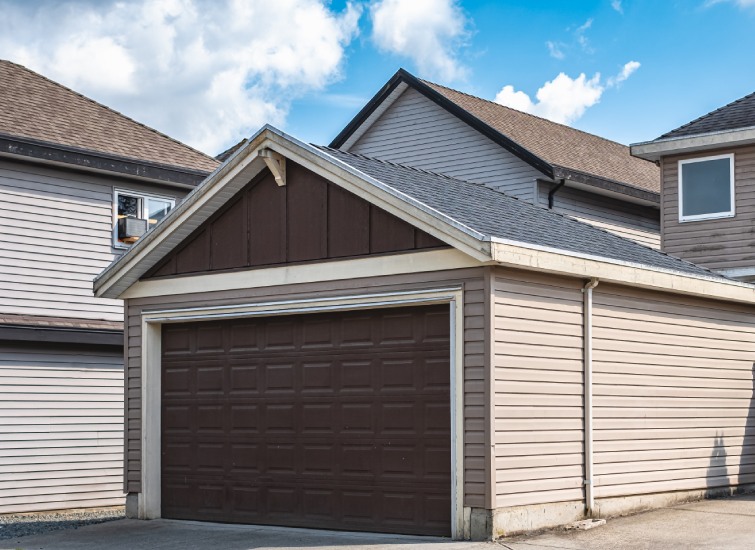Managing multiple rental properties in Canada isn’t just about collecting rent; it’s an art of balancing the needs of your tenants with savvy business acumen. With the right approach, you can turn your properties into a thriving source of income and long-term investment success.
Benefits of Owning Multiple Rental Properties
Increased Passive Income
Your primary goal with rental properties is most likely to generate income. With multiple rentals, you’re not just increasing your income, you’re also setting up a stable flow of passive revenue. Each property contributes to the overall income, which can significantly exceed what you’d earn from a single unit. For instance, if one property nets $1,000 per month, owning five could mean a monthly income of $5,000—before expenses, of course. This kind of earning potential is substantial when building wealth or planning for retirement.
Diversification of Risk
Relying on a single property for rental income can be risky. Tenant turnover, unexpected maintenance, or regional economic downturns can drastically affect your cash flow. However, when you own multiple properties, you spread out your risks. A vacancy in one property has less of an impact because you have others to fall back on. Balanced across various locations and property types, your investment portfolio can weather local market fluctuations that may otherwise jeopardize a single-property investment.
Potential for Appreciation
Real estate is a unique investment that it often appreciates over time.
With a diverse portfolio of properties, you’re not just looking at one chance for your investment to increase in value but multiple opportunities. As property values rise, so does the potential net worth of your portfolio. This increase allows you to leverage more equity, which can be reinvested into further properties. It’s a positive cycle that can lead to significant wealth accumulation for diligent investors who understand market trends and make informed decisions.
Challenges of Managing Multiple Rental Properties

Time Management
Managing a portfolio of rental properties demands considerable time commitment. Your role extends far beyond the signing of lease agreements; it includes ongoing interactions with tenants, scheduling maintenance, and keeping up with the financial aspects of each property. For individual landlords, tasks accumulate quickly, potentially leading to a time crunch.
- Balancing Priorities: Juggling multiple tenants and properties often means that urgent issues can arise simultaneously, forcing you to prioritize on the fly.
- Efficiency is Key: The more properties you handle, the more streamlined your processes need to be to ensure nothing falls through the cracks.
Tenant Turnover
High tenant turnover is both a symptom and a source of challenges. Each change of tenant necessitates a series of time-consuming tasks such as marketing the property, screening potential tenants, and preparing the unit for its new occupants.
Turnover Costs: Frequent changes in tenants can lead to:
- Interruptions in your cash flow
- Additional costs for cleaning, repairs, and advertising
- Time lost during the screening and move-in processes
Stabilizing Tenure: One of your aims should be to enforce policies that encourage longer stays to minimize turnover and its associated costs.
Maintenance and Repairs
Maintenance and repair issues are as inevitable as they are varied. The complexity increases with the number of properties you own.
- Preventive Measures: Regular inspections and preventive maintenance can help reduce emergency repair situations.
- Rapid Response: When urgent issues do occur, a swift response can prevent further damage and maintain tenant satisfaction.
- Resource Allocation: Ensuring you have the right vendors and service personnel on hand is vital to addressing maintenance efficiently. Failure to do so can have detrimental effects on both the condition of your property and your relationship with tenants.
Strategies for Efficient Property Management
When you’re tasked with the oversight of several rental properties, it’s imperative that you execute efficient property management strategies. Addressing this area effectively can prevent potential issues and smooth out operations, resulting in a more profitable investment.
Develop a Solid Screening Process
A stringent tenant screening process is a cornerstone of successful property management. By meticulously reviewing each applicant, you reduce the likelihood of future rent defaults and property damage.
- Begin with a detailed rental application form that gathers comprehensive information, including employment history and previous tenancies.
- Conduct credit checks to assess financial reliability and confirm the capacity for regular rent payments.
- Seek out references, especially from former landlords, to gauge the applicant’s tenancy record.
- Verify identity and income to avoid fraud and confirm the tenant can afford the rent.
Implement Effective Communication Strategies
Clear and responsive communication forms the backbone of property management, especially when handling multiple units.
- Use dedicated email addresses and phone numbers for each property, facilitating targeted and streamlined interactions.
- Schedule regular updates and check-ins to proactively handle maintenance requests and address tenant concerns.
- Implement a clear protocol for emergencies, ensuring quick and effective responses to urgent matters.
Utilize Property Management Software
The rise of technology has greatly benefited the realm of property management. Here’s why you should consider integrating property management software into your operations:
- Real-time access to financial records, tenant information, and maintenance schedules from anywhere streamlines management tasks.
- Automated features for rent collection, lease renewals, and property listings reduce manual workloads.
- Insights from data analytics can inform decisions on property investments and enhancements.
Financial Considerations

Assessing Cash Flow
When managing multiple rental properties, cash flow is your financial lifeline. You’ll want to forecast the potential return on each property to ensure sustainability and growth in your portfolio. The use of analytical tools can aid in this process; by entering property-specific data, you can view projected ROI metrics such as net operating income (NOI) and cash-on-cash return. For example, with a rental property’s annual NOI at $6,000 and a purchase value of $100,000, your cap rate would be 6%.
Metric
Calculation
Example
Net Operating Income (NOI)
Cash Flow – Mortgage Payment
$6,000
Cap Rate
NOI / Property Value
6%
Cash on Cash Return
Pre-Tax Cash Flow / Total Cash Invested
10%
Tracking Expenses and Income
Efficiently managing the financial aspect requires diligent tracking of both expenses and income.
- Rent Payments: Set and collect the correct rent amount punctually.
- Mortgage Payments: Ensure these are sustainable and paid timely.
- Insurance: Vital to be paid on schedule and within budget.
- Property Taxes: Factor this annually into your financial planning.
- Utilities: Handle these in accordance with your lease agreements.
- Fees/Fines: Avoid additional costs by meeting all regulatory requirements.
Tax Implications
Dealing with taxes can be complex; however, understanding tax implications like depreciation can be significantly advantageous. Residential property can depreciate over 27.5 years, potentially lowering your taxable income. If you own a property worth $150,000, this could amount to an annual deduction of $5,455.
Keep in mind the necessity of accurate reporting on rental income taxes. As your portfolio grows, so do potential tax benefits. You may find that your cumulative depreciation expenses could lower your overall tax bracket, underscoring the need for meticulous expense tracking and tax preparation.
Conclusion
Efficiently managing multiple rental properties requires a keen eye on finances and a strategic approach to planning. By diligently tracking your cash flow and using analytical tools, you’ll be better equipped to forecast returns and maintain a robust revenue stream. Remember, meticulous record-keeping and understanding the tax implications of your investments are paramount. With these strategies in place, you’re set to navigate the complexities of property management and maximize your investment potential.








